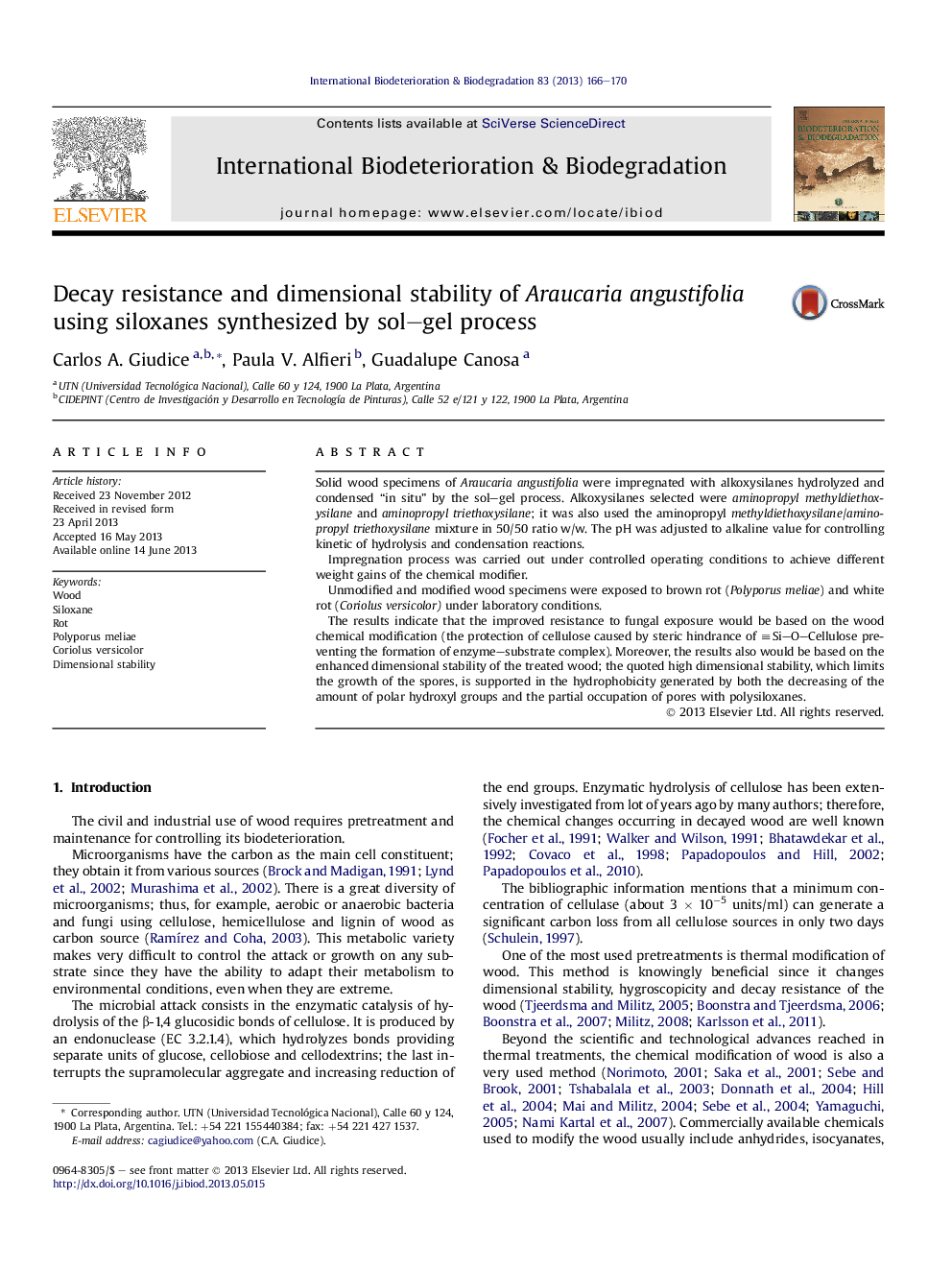| Article ID | Journal | Published Year | Pages | File Type |
|---|---|---|---|---|
| 4364896 | International Biodeterioration & Biodegradation | 2013 | 5 Pages |
Abstract
The results indicate that the improved resistance to fungal exposure would be based on the wood chemical modification (the protection of cellulose caused by steric hindrance of â¡Si-O-Cellulose preventing the formation of enzyme-substrate complex). Moreover, the results also would be based on the enhanced dimensional stability of the treated wood; the quoted high dimensional stability, which limits the growth of the spores, is supported in the hydrophobicity generated by both the decreasing of the amount of polar hydroxyl groups and the partial occupation of pores with polysiloxanes.
Related Topics
Life Sciences
Environmental Science
Environmental Science (General)
Authors
Carlos A. Giudice, Paula V. Alfieri, Guadalupe Canosa,
